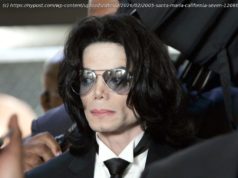He describes great literature at length both to explain his songs and to show why they’ re beyond explanation.
If you’ ve never gotten around to sitting down and reading Moby Dick, fear not, Bob Dylan will summarize it for you. Excerpted from his newly released Nobel Lecture in Literature, here is the opening paragraph of his description of Herman Melville’s opus:
Moby Dick is a fascinating book, a book that’s filled with scenes of high drama and dramatic dialogue. The book makes demands on you. The plot is straightforward. The mysterious Captain Ahab—captain of a ship called the Pequod—an egomaniac with a peg leg pursuing his nemesis, the great white whale Moby Dick who took his leg. And he pursues him all the way from the Atlantic around the tip of Africa and into the Indian Ocean. He pursues the whale around both sides of the earth. It’s an abstract goal, nothing concrete or definite. He calls Moby the emperor, sees him as the embodiment of evil. Ahab’s got a wife and child back in Nantucket that he reminisces about now and again. You can anticipate what will happen.
He goes on for about 800 more words relating the events, the characters, and the feel of Moby Dick. Then he gives much the same treatment to Erich Maria Remarque’s World War I novel All Quiet on the Western Front (“a horror story… a book where you lose your childhood, your faith in a meaningful world, and your concern for individuals”) , and Homer’s The Odyssey (“a strange, adventurous tale of a grown man trying to get home after fighting in a war”) . In the 27-minute audio clip released by the Nobel committee, you can hear Dylan deliver these Cliff Notes of classics in his extremely distinctive drawl over soft piano tinkling.
The lecture marks the fittingly odd culmination of Dylan’s saga with the Nobel Committee. Last October, the Swedish Academy named him as the recipient of writing’s top honor, triggering think-piece wars over whether music can be literature and then devolving into a comedy of manners. One committee member called Dylan “impolite and arrogant” for not returning the Nobel committee’s phone calls immediately; he skipped the main prize ceremony, though he did send a statement. The awarding of 8 million in Swedish krona that accompanies the Nobel was contingent on Dylan delivering a lecture by June 10—a requirement it was not clear he would fulfill until his monologue arrived online Monday.
Bob Dylan’s Nobel Prize Isn’t About Music
The speech itself is typically Dylan in a few ways: It seems perched between sincerity and trolling, draws from Western culture’s most elemental influences, and works according to its own logic. Reaction has been mixed; some people have pointed out that Dylan’s writing has the sophistication of a high-school book report (e.g.: “ Moby Dick is a seafaring tale. One of the men, the narrator, says, ‘Call me Ishmael.’ ”) . But part of the point surely is in the colloquial style of his retelling: He’s turning tomes into folktales. He’s also arguably doing something more subtle. Through summary, he’s showing how literature and song defy summary.
The lecture opens with him “wondering exactly how my songs related to literature” and then turns to his musical influences. There’s Buddy Holly, who at a concert, Dylan says, “looked me right straight dead in the eye, and he transmitted something.” There’s the folk and blues legend Lead Belly, whose song “Cotton Fields” “changed my life right then and there.” And there are the American folk traditions: “ragtime blues, work songs, Georgia sea shanties, Appalachian ballads and cowboy songs.” When he discovered folk tunes, he says, he realized they “were different than the radio songs that I’ d been listening to all along. They were more vibrant and truthful to life.” This “vernacular” formed the basis for his own songwriting: “None of it went over my head—the devices, the techniques, the secrets, the mysteries.”
Then he turns to literature, citing the novels he read in grammar school as an important influence: “The themes from those books worked their way into many of my songs, either knowingly or unintentionally.” It’s up to the listener to propose parallels between his songs and the books he cites, and it’s not too difficult to do so. “Bob Dylan’s 115th Dream, ” for example, obviously pays tribute to Moby Dick with its character Captain Arab. But more than that, what Dylan describes as Melville’s collaging of “Zodiac symbols, religious allegory, stereotypes” is a decent definition of “Dylanesque” lyrics.
Dylan’s connection to All Quiet on the Western Front is also fairly clear, with his anti-war lyrics sharing the novel’s indignant, despairing spirit. “You’ ve come to despise that older generation that sent you out into this madness, into this torture chamber, ” Dylan says of the book’s protagonist, but the “you” could also be Boomer youth rebelling against the Vietnam War. Certainly the surreal carnage depicted in a song like “A Hard Rain’s A-Gonna Fall” isn’ t far off from his rendering of Remarque’s descriptions: Dylan sang of “guns and sharp swords in the hands of young children, ” and now writes of “young boys who are of little military use, but they’ re draftin’ ‘em anyway because they’ re running out of men.” As for The Odyssey, Odysseus is a typical Dylan character: “a travelin’ man, but he’s making a lot of stops, ” as he puts it.
But Dylan’s not just trying to illuminate some of the themes of his work. With these knotty book summaries, rendered in prose that’s alternately plain and purple, crammed with details, seething with feeling, he’s paying tribute to art’s irreducibility. To close, he reflects, “I don’ t have to know what a song means… When Melville put all his Old Testament, biblical references, scientific theories, Protestant doctrines, and all that knowledge of the sea and sailing ships and whales into one story, I don’t think he would have worried about it either—what it all means.” He also points out that “songs are unlike literature … lyrics in songs are meant to be sung, not read on a page.” So it may be significant that this lecture arrives as a sound file with background music and Dylan’s one-of-a-kind phrasing.






